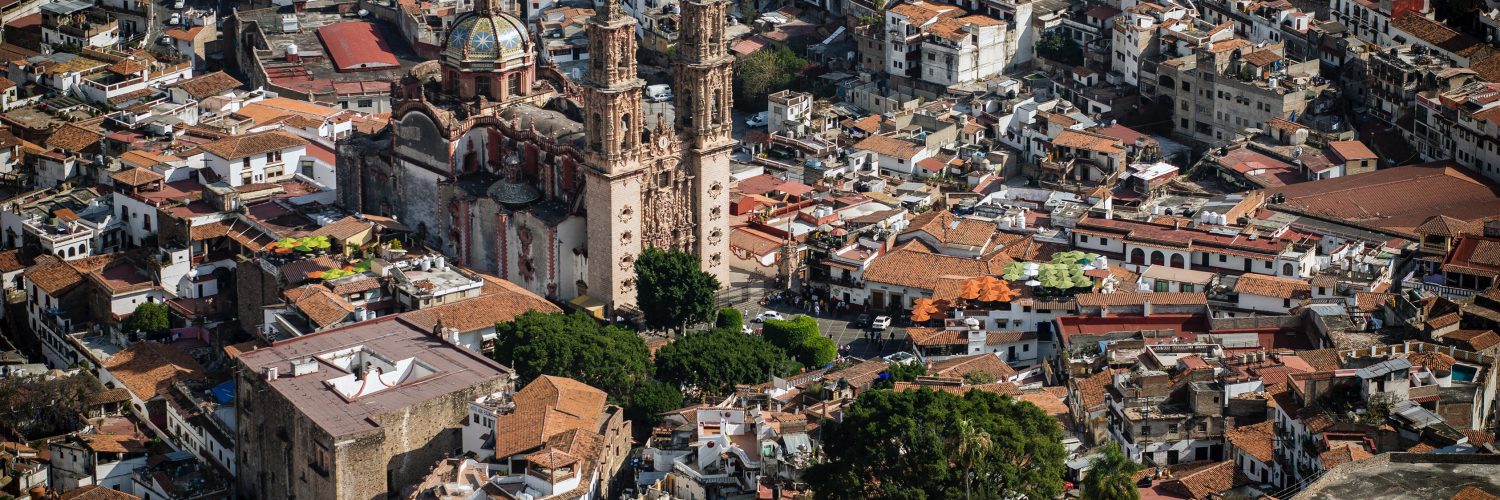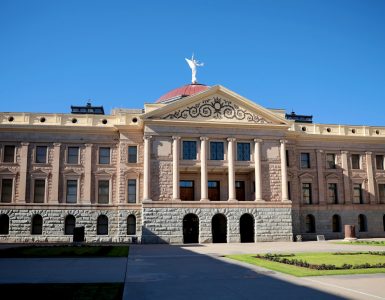Free trade between the U.S., Mexico and Canada has fueled the three economies to the tune of trillions of dollars and millions of jobs since the North American Free Trade Agreement (NAFTA) was ratified in 1994.
It has resulted in intricate supply chains, increased investment, and prompted more tourism across borders. Now, a new updated free trade deal for the modern digital age is waiting on the U.S. Congress that just returned from its summer break.
The new agreement to replace the dated NAFTA – the United States-Mexico-Canada Agreement (USMCA) – is designed to secure free trade and update it for the digital age.
For Mexico, the deal is needed to stabilize the country’s economy, trade experts said.
“This deal is incredibly important to Mexico,” said Jonas Gamso, an assistant professor of international trade and global studies at Arizona State University’s Thunderbird School of Global Management. “The U.S. market is huge for Mexico, in the neighborhood of 75 percent of Mexico’s exports go to the U.S.”
If there was any doubt that Mexico’s new president Andrés Manuel López Obrador, popularly known as AMLO, was going to shy away from trade after his election, it has all but been erased, Gamso said.
“He seems to be all in on it because it is so important to Mexico’s economic well being,” he said.
Mexican budget proposal to secure trade pact
Mexico has stepped up repeatedly to appease the U.S., particularly Democrats in Congress, who have stalled on voting on the USMCA as they haggle over whether Mexico will honor labor and environmental reforms in the framework.
This month, Mexico introduced a proposed 6.05-trillion-peso (US $310 billion) budget for 2020 that promises to cement its commitment.
It highlights increased spending on security that likely will include clamping down further on illegal migration north to America, a vow AMLO made and has followed through with to prevent new tariffs being imposed by President Donald Trump, Gamso said.
Since AMLO beefed up security forces in June, illegal migration has dropped 56 percent, Mexico Foreign Minister Marcelo Ebrard announced this month.
The new budget package also emphasizes spending for social services, AMLO’s campaign promise to citizens. Some of that funding likely will be targeted to enforce labor reforms in the USMCA that allow workers to unionize.
Robert Grosse, director for Latin America at Thunderbird, said there is no significant reason for AMLO to step back from that promise. Though new requirements in the USMCA to increase wages for auto workers along the border could cause some strife during the budget process.
“AMLO is not likely to take on an industry that he might view as one of his bases for being elected in the first place,” Grosse said. “He certainly wouldn’t find opposition from assembly workers in the auto industry but it might turn out that that means that car companies and Mexican companies that use them would hire fewer people at higher cost. That’s the risk, the two sides of the coin.”
The biggest threat: politics
Mexico was the first country to ratify the USMCA. Canada has moved to ratify the deal as well. Every step forward by Mexico and Canada means another Democrat may jump on the bandwagon for ratification, Gamso said.
There appears to be no reason for delay except politics, trade experts said.
“The challenge is that the Democrats may oppose whatever President Trump does,” Grosse said.
White House trade officials and leading Republicans have stated that the “votes are there” to get the deal sealed.
On Tuesday, top Democrat Nancy Pelosi said she and her colleagues still have concerns.
“But we hope that we’re on a path to “yes.” The most important issue outstanding is enforceability,” Pelosi said in an interview on national television on CNBC.
The longer the wait, the more likely it won’t happen before the election, Gamso said. Democrats will not want to give Trump a victory that close to the election.
Arizona needs this deal
For Arizona, the deal is critical. Mexico is the state’s largest trading partner.
“America and Arizona’s businesses are beyond ready to ratify the USMCA,” Gov. Doug Ducey said at a U.S. Chamber of Commerce press conference in Washington Monday. “There’s 44 other American states that enjoy either number one or two trading relationship[s] with Mexico and Canada. So with the USMCA our country has a once in a generation opportunity to take our North American trade relationships to an entirely new level.”
As Congress drags its feet, there’s no denying, an update is sorely needed, trade experts said.
Modern trade deal for a digital age
USMCA adds protections for digital trade and intellectual property, issues that did not exist 25 years ago when NAFTA took hold. More importantly, sealing the deal would bring certainty to one of the most powerful trading blocs in the world.
“The reason that NAFTA is so important to Mexico and the U.S. is because it demonstrates that Mexico rules are credible and that has enticed American industry to set up assembly of their cars and computers, and airplane parts, and textiles and clothing in Mexico because they trust that the rules aren’t going to change,” Grosse said.
















Add comment